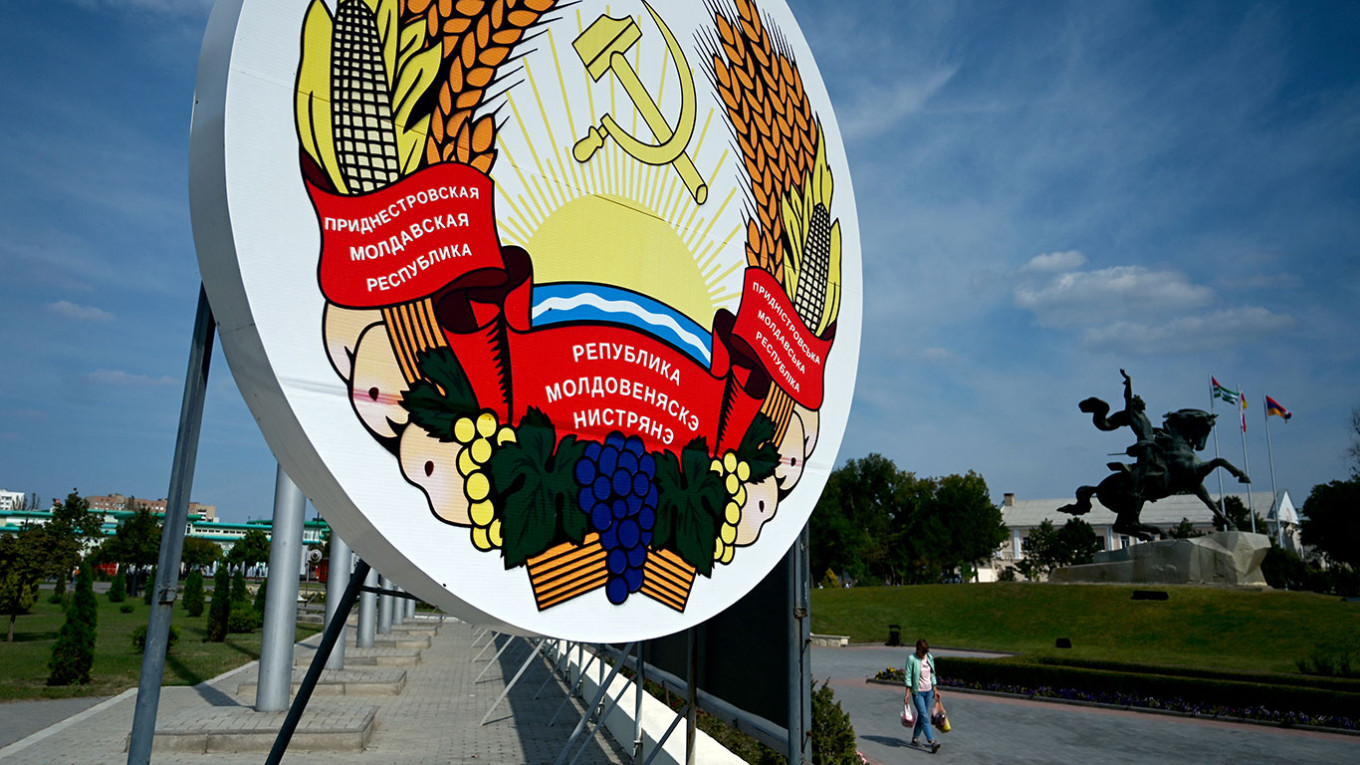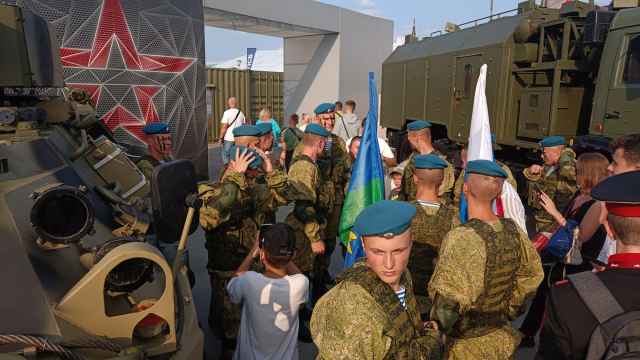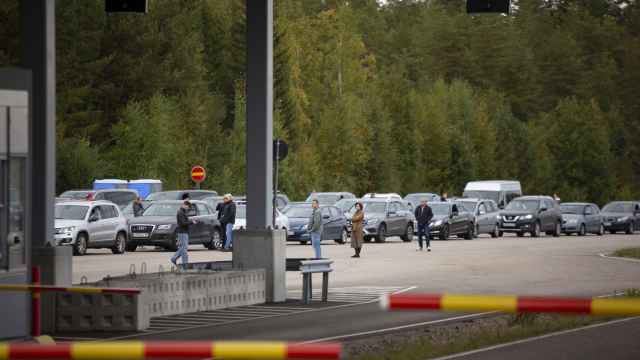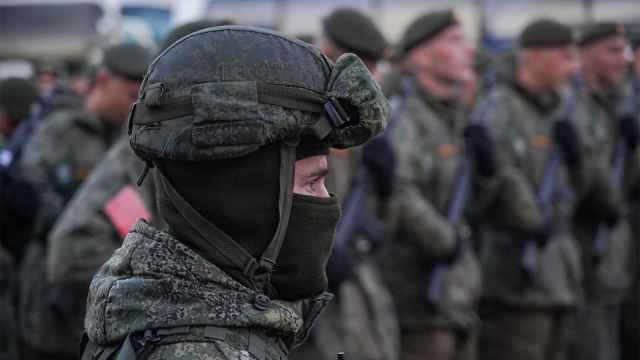Fears rose Tuesday that Moscow could order a military push through southwest Ukraine following Russian airstrikes on infrastructure near the Black Sea coast and a series of blasts in the Moscow-backed separatist region of Transnistria on Ukraine's western border.
The military developments followed hints from a Russian general about an attempt to link up with Transnistrian forces, and cutting-off Kyiv’s access to the southern part of the country.
But military experts warn that – even if it exists – such a Russian plan is unlikely to be feasible in the immediate future given logistical difficulties and the Kremlin’s concentration of men and equipment in eastern Ukraine.
“The chances of them breaking out and fighting through to Odesa and Transnistria are slim,” said Sam Cranny-Evans, a military analyst at the London-based Royal United Services Institute think tank. “They’d probably all die if they tried.”
Instead, Russian forces are currently focused on striking north from the port city of Mariupol and south from the strategic town Izyum, in an attempt to encircle Ukrainian troops in the east of the country. The so-called “battle for Donbas” could be long and arduous, according to analysts, leaving Moscow few options if it was mulling a push out of the Russian-occupied city of Kherson in the direction of Moldova.
A strip of land home to about 470,000 people, the Moldovan separatist region of Transnistria is sandwiched between Moldova and Ukraine, and has been under the control of separatist authorities since a 1992 war. Russia bases about 1,500 troops there, which it refers to as peacekeepers.

“If you look at Kherson… there aren't many troops compared to Izyum, where there's potentially 25,000 pushing south,” Cranny-Evans told The Moscow Times.
There are between 7,000 and 11,000 Russian soldiers deployed around Kherson, according to analysts. Transnistria is about 300 kilometers from Kherson.
“The plan remains to take [the eastern Ukrainian regions of] Donetsk and Luhansk and to hold on to the southern territories Russia has taken so far,'' said Dmitry Gorenburg, a researcher on Russian security at the Virginia-based CNA think tank.
Speculation about a Russian push through southwestern Ukraine began Friday, when General Rustam Minnekayev, the deputy commander of Russia's Central Military District, said that "control over the south of Ukraine is another way out to Transnistria, where there are also facts of oppression of the Russian-speaking population.”
This was followed Monday by explosions at the headquarters of Transnistria’s security services and blasts Tuesday at two Transnistrian radio towers. The Moldovan authorities said Tuesday that the attacks were a “pretext” for stirring tensions in the region.
Kremlin spokesperson Dmitry Peskov told reporters that Moscow was following the situation in Transnistria closely, and expressed "concern" at the violence.
Yet, despite these events, analysts said Russia was unlikely to launch an attack westward in an attempt to link up with the Russian forces based in the separatist region, and that Minnekayev was more likely setting out what Russia hopes may one day be possible.
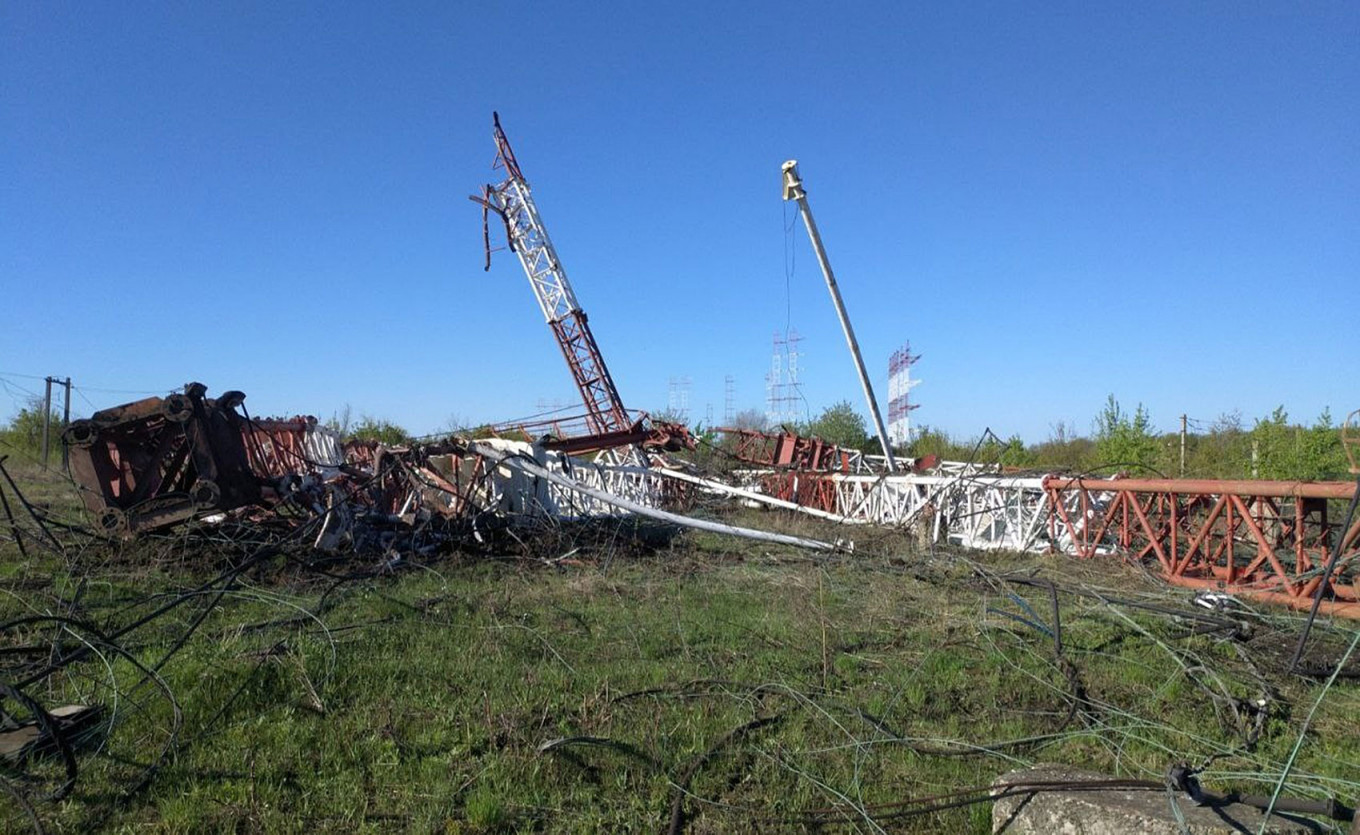
“This was a statement to encourage the troops, rather than… revised Russian war aims,” said Gorenburg. Minnekayev does not lead operations in southern Ukraine and is not the figure you would expect to lay out Russia’s military goals there, he added.
To even begin considering a breakout to the west, Russia would need to first utilize the superiority it has in air and naval forces.
The sinking of the Moskva missile cruiser, the flagship of Russia’s Black Sea fleet, earlier this month has led to a more cautious approach from the Russian navy, according to Gorenburg. Instead, Russia is slowly asserting its dominance in the air.
“Russian air force sorties are up 150% over the last week, about 300 a day, and that will just be unrelenting for the Ukrainians,” Cranny-Evans said.
In particular, Russia appears to have stepped up attacks on targets in and around the southern city of Odessa. A Russian missile attack Tuesday destroyed a bridge over the Dniester estuary to the west of Odessa, according to Ukrainian officials. There were also several missile attacks on the port city Sunday, at least one of which resulted in civilian casualties.
These strikes could be part of a wider Russian plan to herd Ukrainian forces into smaller pockets and cut off their supply lines, leading to long-term shortages of food, ammunition and air defense equipment, according to Cranny-Evans.
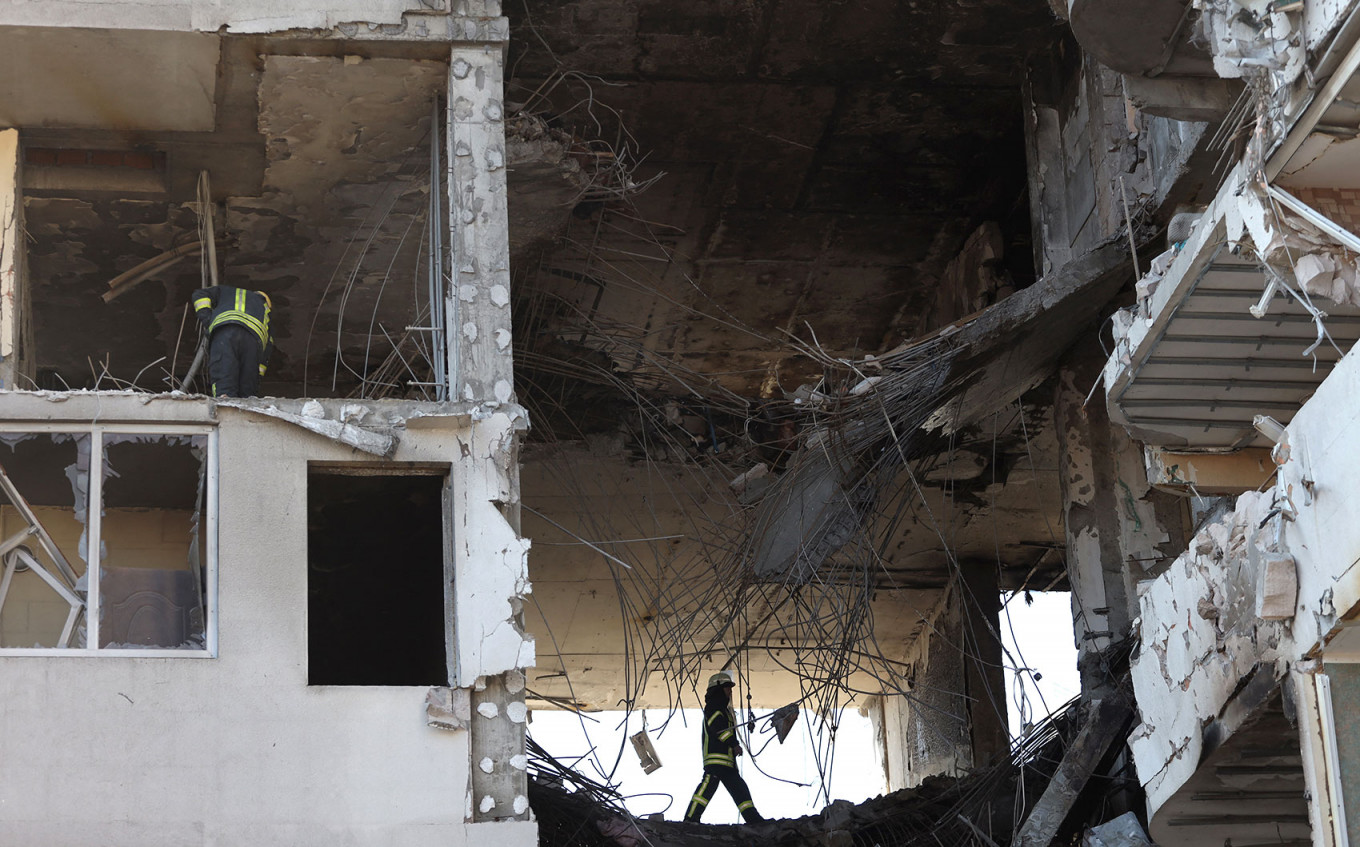
“The Russians did have initial designs on Moldova,” said Cranny-Evans. “They’re leaving that door open.”
For Ukraine, a successful defense against Russian military pressure in the south will depend on its ability to absorb these air strikes and regroup.
If the military authorities in Kyiv can protect their reserves of men and equipment, and ensure the continued delivery of weapons from Western countries, they might be able to think about launching counterattacks in the coming months.
“But before they can even begin to rethink about taking territory, they have to survive,” Cranny-Evans said.
A Message from The Moscow Times:
Dear readers,
We are facing unprecedented challenges. Russia's Prosecutor General's Office has designated The Moscow Times as an "undesirable" organization, criminalizing our work and putting our staff at risk of prosecution. This follows our earlier unjust labeling as a "foreign agent."
These actions are direct attempts to silence independent journalism in Russia. The authorities claim our work "discredits the decisions of the Russian leadership." We see things differently: we strive to provide accurate, unbiased reporting on Russia.
We, the journalists of The Moscow Times, refuse to be silenced. But to continue our work, we need your help.
Your support, no matter how small, makes a world of difference. If you can, please support us monthly starting from just $2. It's quick to set up, and every contribution makes a significant impact.
By supporting The Moscow Times, you're defending open, independent journalism in the face of repression. Thank you for standing with us.
Remind me later.



